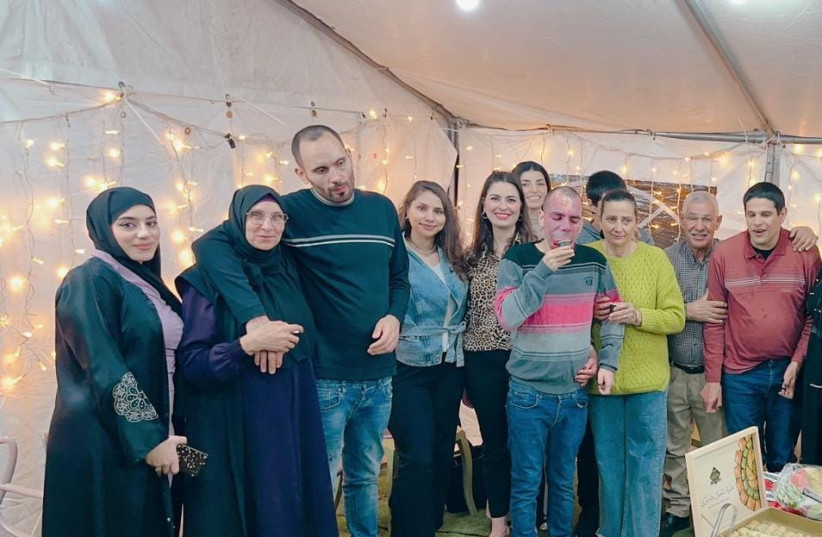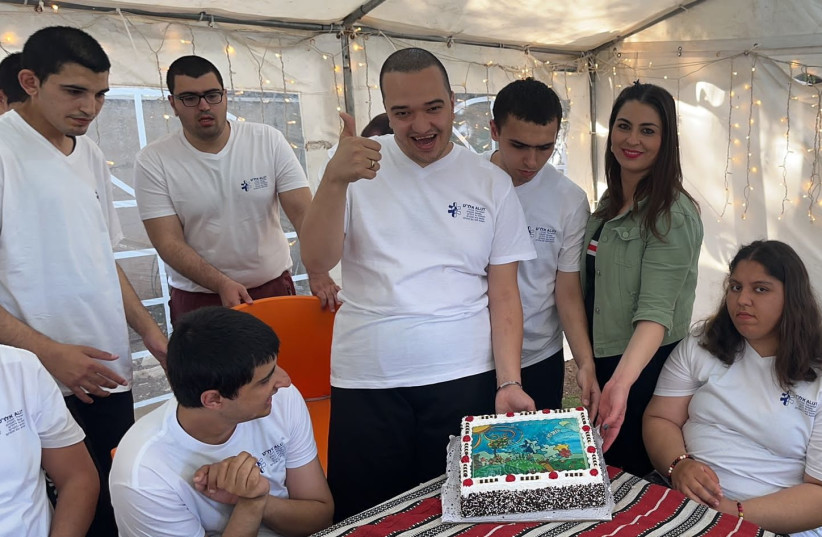This past week marked International Autism Day when awareness is raised for the well-being and inclusion of the population on the autistic spectrum.
According to Israel’s Central Bureau of Statistics, out of Israel’s population of 52 thousand people formally recognized as being on the autistic spectrum, roughly 90% are Jewish, and only 8.4% are Arab. Since there is no reason to assume such a disparity among the populations, this information is seen as proof that much more should be done to raise awareness and refer the Arab population to medical diagnosis.
Nevertheless, a positive trend has been marked in medical diagnosis applications within the Arab sector.
Statistics from 2022 found that for those born before the year 2000, one male out of 1,000 and close to zero females were diagnosed with autism. For those born by 2018, however, the number increased to 17 and 5, respectively. Notedly, this data is based on formal recognition, which in turn is affected by the willingness of families to get a medical diagnosis.
In 2018, a special Knesset session addressed the issue of autism in Arab society, where participants also pointed at what they referred to as under-diagnosis, demonstrating how at Soroka Medical Center in Beersheba, for instance, only a quarter of referrals to medical diagnoses involve Arab families, while three quarters are Jewish. According to the participants, the main goal is to reach children with autism before the age of three to ensure they enroll in appropriate and relevant educational institutions, which is crucial to their development and well-being.

Other issues noted at the 2018 session included a lack of sufficient institutions and employment opportunities in the Arab sector, with only one Arabic-speaking hostel for people with autism in the north. ALUT, the Israeli Association for Children and Adults with Autism, runs Beit Havradim, a hostel in the northern Arab city of Shfaram.
Established in 1974, ALUT is the oldest as well as the leading body in the field of autism in Israel, treating children and adults on the autistic spectrum in hundreds of therapeutic, educational settings throughout the country, including daycare centers, kindergartens, leisure settings, housing settings, and study and employment centers. The association is also engaged in promoting the rights of people on the autistic spectrum and their families while facing state authorities. It engages in accompanying, supporting, and providing information to these families and helping them to exercise their rights.
The Jerusalem Post spoke to Katreen Naddaf, director of ALUT’s Beit Havradim, which is home to 17 people on the autistic spectrum, or, as Naddaf calls them, “our friends.”
“Our hostel was the only one that accepted children. They started when they were young, 8-10 years old, and now most are adults, with one 16-year-old still going to school. We boast activities such as music sessions, shiatsu, and more. We also feature a unique employment center, where we team up with factories where our members work in different areas, from filling tea bags to packaging letters and more. There is no such employment center in the Arab sector except for us.
“We’re the only ones, so this also makes us unique in our way,” she added with a smile.
“We also feature an excellent professional staff, including occupational therapists, psychiatrists, applied behavior analysts, and chancellors who undergo proper training. It’s beautiful to see the connection, the trust, and the belief they have in our friends and their abilities.”
How does day-to-day life look for people in the hostel?
“For people with autism, life must be very structured, seeing as they don’t adapt well to change. Any alterations made in their schedules must be accompanied by proper preparation days beforehand,” explained Naddaf. “So, in the mornings, they usually go to the employment center, and when they come back, they have a daily meeting in which they go over the next part of the day using pictures.
“In our hostel, though most are high-functioning, they don’t speak and communicate through pictures. Sometimes we go out to the community, buy groceries, go to restaurants and the swimming pool,” Naddaf added. “We also have yearly recreational sessions that last for several days. Last week, for instance, we went to Eilat, and they thoroughly enjoyed it. We also celebrate all holidays together from all religions, and last week, I even hosted a festive Iftar meal.
“Their families are also very involved. Some see them every week; others see them less often. Some of the parents also donate equipment and money or prepare food, and it’s just beautiful.”

What are the main challenges that people on the autistic spectrum face in the Arab sector?
“The main problem is a lack of awareness. Some are surprised by the very notion that autism exists. We work a lot on raising awareness. The International Day of Autism was a great opportunity for that. We all wore special white shirts, did activities, met with people... We also raise awareness through our social media platforms and in schools so that more people are exposed to this population.
“Today, people are more accepting and inclusive,” added Naddaf. “They understand that this is a unique population with their own set of needs. There’s more support. In the past, nobody knew what it meant. But nowadays, there’s more awareness and medical prognosis as well as social media.”
“We haven’t faced any issues accessing state funding, and we provide services similar in level to Jewish-led institutions,” stressed Naddaf. “This is ALUT’s only Arabic-speaking hostel, so our friends come from across the country. Fortunately, last year, another association set up a similar hostel for Arabic-speaking families, which is great.”
Naddaf added that many people living near the hostel look for ways to contribute. They “just knock on our door and ask to volunteer and help in some way.”
How has the war affected the hostel?
“We’ve had special sessions and activities about the war. We had to change their schedules for a while because the employment center wasn’t functioning because of the situation, which was challenging in itself. We do try to explain to them what is going on in a manner they can grasp.”
Despite the challenges and hardships, Naddaf remains positive. “My message would be to support, include, embrace, and believe in our friends with autism. Really, for them, the sky is the limit.”
